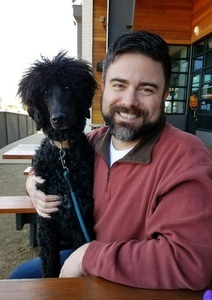9077757
U1 Intro to Development and U2 Reflexes
Description
No tags specified
Quiz by Ben Williams, updated more than 1 year ago
More
Less

|
Created by Ben Williams
over 7 years ago
|
|
Resource summary
Question 1
Question
Select from the following the appropriate characteristics of the Zygote Stage of Fetal Development
Answer
-
Lasts from conception until implantation in the uterus
-
Usually lasts <=2 weeks
-
Marked by rapid cell division through mitosis
-
Placenta is formed
-
Morphogenesis occurs
-
Lots of Cell Differentiation
-
Reproductive Organs become evident
Question 2
Question
Select from the following the appropriate characteristics of the Embryo Stage of Fetal Development
Answer
-
Placenta is Formed
-
Cell Differentiation and Morphogenesis
-
Two-Million Percent Growth
-
First Trimester of Pregnancy
-
Reproductive Organs become evident
-
Second Trimester of Pregnancy
-
Skeletal Muscles Become Active
-
Lasts ~2 weeks
Question 3
Question
Select from the following the appropriate characteristics of the Fetal Stage of Fetal Development
Answer
-
Reproductive Organs Become Evident
-
Skeletal Muscles Become Active
-
Second and Third Trimesters of Pregnancy
-
Begins at conception and ends at implantation into the uterus
-
Morphogenesis Occurs
-
Lots of Cell Differentiation
-
Placenta Forms
Question 4
Question
Physiological Flexion is Characterized by which of the following?
Answer
-
UE Flexion
-
LE Flexion
-
Adduction
-
Internal Rotation
-
Abduction
-
External Rotation
-
UE Extension
-
LE Extension
Question 5
Question
APGAR stands for which of the following?
Answer
-
Activity
-
Pulse
-
Grimace
-
Appearance
-
Respiration
-
Alcohol
-
Ability
-
Pain
-
Grip strength
-
Redness
Question 6
Question
Putting a newborn into ventral suspension is likely to elicit which reflex?
Answer
-
Landau
-
Moro
-
ATNR
-
Neonatal Neck Righting
Question 7
Question
Which reflex is characterized by the infant extending its head against gravity so that it lifts its head above the horizontal plane of the trunk and extending the hips to bring up the legs?
Answer
-
Landau
-
Moro
-
ATNR
-
Neonatal Neck Righting
Question 8
Question
Which reflex is elicited by holding the infant in semi-supine with one hand supporting the trunk and one hand supporting the head. The hand supporting the head is quickly removed, allowing the infant’s head to fall backwards 20-30 degrees from the plane of the trunk, which is still supported.
Answer
-
Landau
-
Moro
-
ATNR
-
Neonatal Neck Righting
Question 9
Question
Which reflex occurs in the following two phases?
First, the arms will abduct at the shoulders and extend at the elbows, wrists and fingers. In the second phase, the arms will adduct at the shoulders and flex at the elbows.
Answer
-
Landau
-
Moro
-
ATNR
-
Neonatal Neck Righting
Question 10
Question
While working with an infant in the clinic you notice that when the infant’s head is turned to one side, the upper and lower extremity on the skull side flex while the upper and lower extremity on the face side extend. Which reflex is causing this?
Answer
-
Landau
-
Moro
-
ATNR
-
Neonatal Neck Righting
Question 11
Question
While working with an infant in the clinic you notice that when the infant’s head is turned to one side and held there (gently, of course), the body rolls to align itself with the head. Which reflex is causing this?
Answer
-
Landau
-
Moro
-
ATNR
-
Neonatal Neck Righting
Want to create your own Quizzes for free with GoConqr? Learn more.
